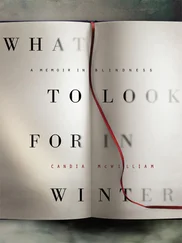Edeet Ravel - Look for Me
Здесь есть возможность читать онлайн «Edeet Ravel - Look for Me» весь текст электронной книги совершенно бесплатно (целиком полную версию без сокращений). В некоторых случаях можно слушать аудио, скачать через торрент в формате fb2 и присутствует краткое содержание. Жанр: Старинная литература, на английском языке. Описание произведения, (предисловие) а так же отзывы посетителей доступны на портале библиотеки ЛибКат.
- Название:Look for Me
- Автор:
- Жанр:
- Год:неизвестен
- ISBN:нет данных
- Рейтинг книги:5 / 5. Голосов: 1
-
Избранное:Добавить в избранное
- Отзывы:
-
Ваша оценка:
- 100
- 1
- 2
- 3
- 4
- 5
Look for Me: краткое содержание, описание и аннотация
Предлагаем к чтению аннотацию, описание, краткое содержание или предисловие (зависит от того, что написал сам автор книги «Look for Me»). Если вы не нашли необходимую информацию о книге — напишите в комментариях, мы постараемся отыскать её.
Look for Me — читать онлайн бесплатно полную книгу (весь текст) целиком
Ниже представлен текст книги, разбитый по страницам. Система сохранения места последней прочитанной страницы, позволяет с удобством читать онлайн бесплатно книгу «Look for Me», без необходимости каждый раз заново искать на чём Вы остановились. Поставьте закладку, и сможете в любой момент перейти на страницу, на которой закончили чтение.
Интервал:
Закладка:
“What are your names?” I asked.
“I’m Ismail. This is Fayez.”
El a, a journalist who wrote about Palestinian a airs, sat down beside us and handed out nectarines. El a had won several international awards for her writing, though none here. She was a passionate person, but her articles were control ed and professional; she could have been reporting on uctuations in stock prices. After al , the facts spoke for themselves. There was no need to do anything other than record them.
“What’s happening?” I asked her.
“I guess we’l be going home,” she sighed, biting into her nectarine.
“You’ve cut your hair.” She’d had shoulder-length hair for as long as I’d known her, but it was cropped now. Her new haircut made her look a lit le like Ingrid Bergman.
El a smiled. “Lice. It was driving me crazy, the shampoos didn’t work, so I got up in the middle of the night and chopped it al of .”
Ismail heard us and said, “Stay away from me!” and the three of us laughed. His friend, Fayez, wanted to know what we were laughing about, and El a repeated what she’d said in Arabic. Fayez nodded, and though he didn’t smile, his eyes relented a lit le. He was amused in spite of himself.
The organizers announced that the demonstration was over and we would be going home. Ismail cried out, “Why, why!” He wanted us to stay, try harder. After al , we were citizens, immune from danger; surely there was something we could do: throw ourselves on the soldiers, maybe, or sit on the road and refuse to move, even if it took days and weeks, until something was done.
I looked at him helplessly. He saw my distress and tried to console me. “At least we have no dead this time, thanks to you.”
His friend grumbled something in Arabic.
“What’s he saying?” I asked.
Ismail was embarrassed. “He’s asking me what I expect you to do. Don’t listen to him. He’s in a bad mood.”
“The girl who had the seizure, is she al right?” I asked. Ra had vanished; I didn’t know whether he was stil in the ambulance or merely lost in the crowd.
“Yes, she made it.”
El a said something in Arabic, and we al shook hands good-bye. El a’s words seemed to have had an uplifting e ect on the two friends.
“What did you say?” I asked her as we walked away.
“Just wished them wel .”
El a and I walked with the group through Ein Mazra’a to the stone field. We took a longer route this time, and the Palestinians gave us cold water to drink. When we reached the borders of the town they said, Wel , that’s it, we can’t go further, our IDs are orange. Thank you for coming, they said. God wil bless you. Thank you for your courage. We want to be your brothers, and to protect you.
We crossed the eld to the road, where our large solid buses were waiting for us. They looked like alien spaceships in their incongruous complacency.
El a and I were on separate buses. “Take care, Dana,” she said.
Everyone climbed onto the buses and sank down on the cushioned seats, sweaty and satis ed. This was the way it was: we left the Palestinians behind, we left them in hel , but people were laughing and talking, because you had to survive and you did it by contracting into your own narrow life, your own personal life, distinct from the con ict and the deaths and the su ering. And besides, the event had been a success, within the con nes of goals that were also narrowed and thinned down: there had been a demonstration, even if we had not reached Mejwan or seen Idris. We had walked side by side with the Palestinians, we had shown that it was possible. And at least the activists who’d stayed overnight had visited Idris. He was in constant pain, they said, and money had to be raised for a stay at a rehabilitation facility in England. He’d been a sports instructor and youth leader before he was shot. The army had promised an investigation, but nothing ever came of such promises.
Through the streaked bul etproof window of the bus I watched the last demonstrators put away their signs. I was keeping an eye out for Odelia. Rafi sat down next to me.
“I’m saving this seat for my friend,” I said.
“Odelia? She’s on the bus behind us.”
“Oh. okay, then. How’s the girl?”

“Oh. okay, then. How’s the girl?”
“She’s fine. Now let’s see what the orders are for today.” He took a sheet of paper out of his pocket. It was covered with notes, handwrit en in green pen.
“Things I have to do,” he said, smiling. “My wife makes lists for me.”
I looked out the window again; I tried to ignore him.
But he said, “I’ve wanted to talk to you for a long time.”
I turned toward him. “I have seen you, come to think of it. You had shorter hair. You had no hair at al .”
“Yes, my hair grows fast, I’m due for another haircut. Where do you live?”
“Opposite the City Beach Hotel.”
“Real y? The manager there is a good friend of mine. We were in the same unit. Coby, do you know him? Tal , dark hair, glasses?”
“Yes, I’ve seen him around. I use their fax machine sometimes.”
“Give him my regards.”
“Okay,” I said.
“Did you take a lot of photos?”
“Four rol s.”
“Am I in any of them?”
“Yes, one.” I didn’t want to look at him, I didn’t want to think about him. He gave up and didn’t speak to me again.
The buses arrived at the park and by then everyone had to pee. We found bushes and trees. Ra was using a tree not far from mine. And when I rose and pul ed up my underwear I saw that he was looking at me, and not smiling, and not turning away.
My father met Git e when they were both sixteen; Git e’s parents owned a jewelry company with interests in South Africa and the family moved there for a few months. Git e and my father took violin lessons at the local music academy on the same afternoon, and my father began waiting until Git e’s lesson was over so he could walk her home. They fel in love, and after she left they exchanged passionate and frequent love let ers, until Git e stopped writing and nal y confessed that she had met someone else. In fact, so had my father, and he was relieved. He’d met my mother. The two of them tried to escape apartheid by moving to Israel, which later made them laugh at themselves.
“From the frying pan into the falafel,” my father used to say.
My father was an engineer, and he loved to sing classical choral music. He dreamed of joining a choir, but had to content himself with singing in the shower or providing vigorous vocal accompaniment to the Munich Bach Choir in our living room. He seemed particularly inspired when he washed the dishes. Denn al es Fleisch es ist wei Gras, und al e Herrlichkeit des Menschen wie des Grases Blumen. This was ne when I was very lit le, but he soon became a social liability and I gave him strict instructions to restrain himself when my friends were over. My father was not a demonstrative person; he was shy when he wasn’t singing, and he let my mother run the household and make al the decisions. But we read the newspaper together. From as far back as I can remember he would sit beside me on the carpet, spread the newspaper in front of us, and comment on the stories: “Unabashed corruption,” he’d say. “Shortsightedness, insanity.” He explained things in simple terms so I could understand them, and by rst grade I probably knew more about our parliamentary system (and its many defects) than any other seven-year-old in the country.
His brother was a doctor, and the two of them, my father and his brother, took me to refugee camps when they went to do volunteer work there. My uncle, an energetic man with a good sense of humor, would do the driving. He liked to sing too, though his specialty was drinking songs or folk classics like “Waltzing Matilda.” I would sit in the back and watch the view change from city to town to vil age and nal y to refugee camp.
Читать дальшеИнтервал:
Закладка:
Похожие книги на «Look for Me»
Представляем Вашему вниманию похожие книги на «Look for Me» списком для выбора. Мы отобрали схожую по названию и смыслу литературу в надежде предоставить читателям больше вариантов отыскать новые, интересные, ещё непрочитанные произведения.
Обсуждение, отзывы о книге «Look for Me» и просто собственные мнения читателей. Оставьте ваши комментарии, напишите, что Вы думаете о произведении, его смысле или главных героях. Укажите что конкретно понравилось, а что нет, и почему Вы так считаете.












